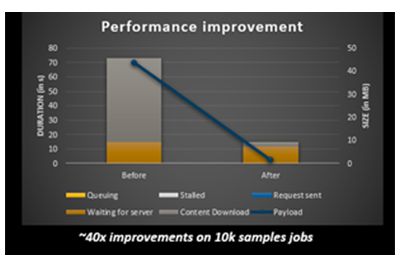Quick Specs
AVxcelerate Autonomy combines statistical analysis and simulation at scale. It automates the scenario exploration to demonstrate and continuously validate the software and systems necessary for the safety of the ADAS/AD.
Ansys empowers the next generation of engineers
Students get free access to world-class simulation software.
Design your future
Connect with Ansys to explore how simulation can power your next breakthrough.
Students get free access to world-class simulation software.
Connect with Ansys to explore how simulation can power your next breakthrough.
A new end-to-end safety-driven solution can deliver up to 100,000x reductions in development cost and time to compliance.
Ansys AVxcelerate Autonomy enables L2+, L3, and above ADAS/AD systems by helping to simulate majority of the required driving tests via virtual simulation. AVxcelerate Autonomy can deliver up to 100,000x reduction in cost and time to compliance. Achieve at least a 100x reduction due to virtualization of the actual drive and an additional 1000x reduction by adaptive optimization in the cloud.

AVxcelerate Autonomy combines statistical analysis and simulation at scale. It automates the scenario exploration to demonstrate and continuously validate the software and systems necessary for the safety of the ADAS/AD.
July 2025
AVxcelerate Autonomy in 2025 R2 enhances ADAS and AV development with faster scenario testing, improved analysis tools, quicker data processing, and full ASAM OpenSCENARIO 1.3 support for seamless platform compatibility.

A highly efficient, configurable workflow with resource-based scheduling and customizable algorithm parameters streamlines ADAS and AV testing, boosting throughput.

Upgrades enhance large-scale data visualization (~40x faster on 10,000-sample jobs), simplify analysis, and enable threshold values beyond the data range. Users can color plots to highlight key metrics and deviations, improving speed and accuracy in decision-making.

Supports ASAM OpenScenario 1.3 and enhanced OpenPASS compliance, ensuring standardized, scalable, and interoperable scenario-based autonomous vehicle (AV) testing.

The BMW Group and Ansys Co-Developing Simulation Software for Automated and Autonomous Driving
AVxcelerate Autonomy is a flexible, modular, and MBSE-driven solution that can determine the probability of failure for ADAS/AD functions. Our proprietary optimization algorithm's adaptive nature helps deliver a 1000x reduction in testing time required for safety validation.

Take advantage of the versatility and unique features of AVxcelerate Autonomy to bring your ADAS/AD projects to completion.
It's vital to Ansys that all users, including those with disabilities, can access our products. As such, we endeavor to follow accessibility requirements based on the US Access Board (Section 508), Web Content Accessibility Guidelines (WCAG), and the current format of the Voluntary Product Accessibility Template (VPAT).
If you're facing engineering challenges, our team is here to assist. With a wealth of experience and a commitment to innovation, we invite you to reach out to us. Let's collaborate to turn your engineering obstacles into opportunities for growth and success. Contact us today to start the conversation.